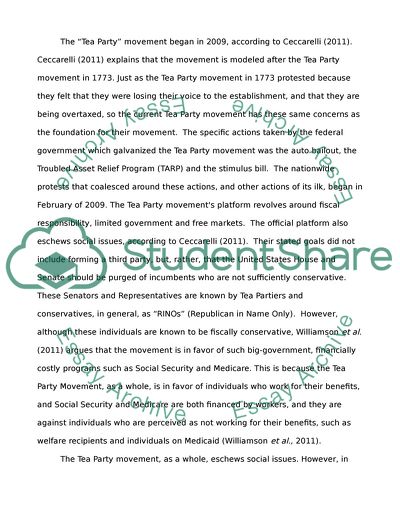Cite this document
(The Effect of the Tea Party Formed in 2009 on Elections in 2012 in the Research Paper, n.d.)
The Effect of the Tea Party Formed in 2009 on Elections in 2012 in the Research Paper. Retrieved from https://studentshare.org/politics/1771848-the-effect-of-the-tea-party-moviement-on-the-2010-and-2012-house-elections-in-the-south
The Effect of the Tea Party Formed in 2009 on Elections in 2012 in the Research Paper. Retrieved from https://studentshare.org/politics/1771848-the-effect-of-the-tea-party-moviement-on-the-2010-and-2012-house-elections-in-the-south
(The Effect of the Tea Party Formed in 2009 on Elections in 2012 in the Research Paper)
The Effect of the Tea Party Formed in 2009 on Elections in 2012 in the Research Paper. https://studentshare.org/politics/1771848-the-effect-of-the-tea-party-moviement-on-the-2010-and-2012-house-elections-in-the-south.
The Effect of the Tea Party Formed in 2009 on Elections in 2012 in the Research Paper. https://studentshare.org/politics/1771848-the-effect-of-the-tea-party-moviement-on-the-2010-and-2012-house-elections-in-the-south.
“The Effect of the Tea Party Formed in 2009 on Elections in 2012 in the Research Paper”, n.d. https://studentshare.org/politics/1771848-the-effect-of-the-tea-party-moviement-on-the-2010-and-2012-house-elections-in-the-south.


